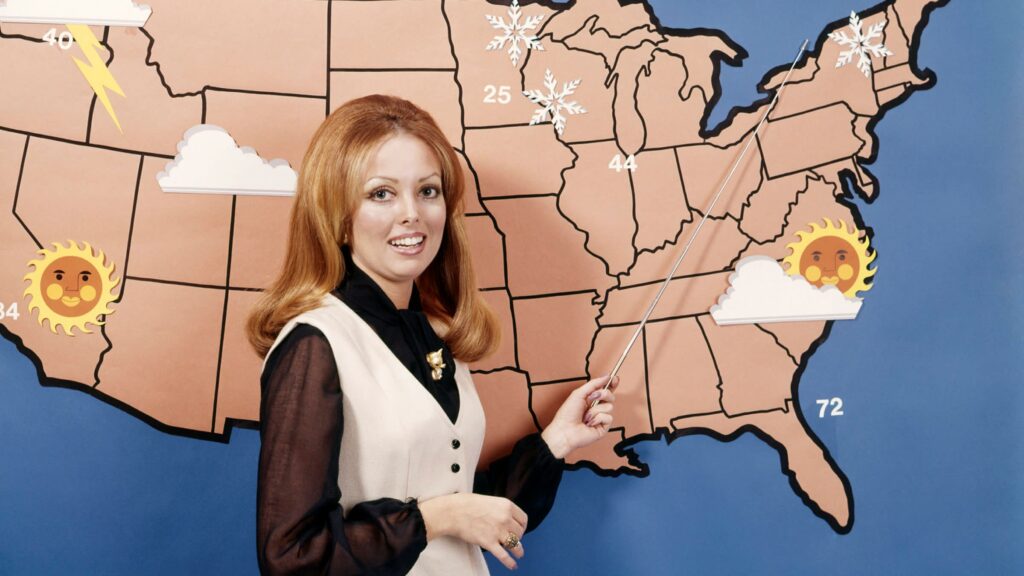Will DeepMind weather forecasts ruin a national obsession?


Receive free Deepmind Technologies Ltd updates
We’ll send you a myFT Daily Digest email rounding up the latest Deepmind Technologies Ltd news every morning.
There’s a saying about journalism: “If someone tells you it’s raining and another person tells you it’s dry, it’s not your job to quote them both. Your job is to look out of the window and find out which is true.”
This isn’t literally what journalism is: readers are capable of looking out of the window themselves, so we’d all be out of a job. Plus, what the public wants to know is whether it will rain later.
Which brings us to weather forecasts. They used to just be on radio and TV, eggheads windmilling their arms indecipherably in front of giant maps. Now they’re everywhere. They’re on our phones. They’re on my laptop toolbar. Guys, wait, there’s a 37 per cent chance of rain!
Such forecasts are always wrong, like opinion polls and strategic decisions by football’s governing bodies. Correction: such forecasts are generally right, but when they do go wrong people get hissy and blame the out-of-touch meteorological elite. Sorry, BBC Weather, but if I’d wanted an app to give me dangerously incorrect information, I would have checked Facebook.
Because of geography, Britain has unpredictable weather. Despite this, forecasts have improved hugely. Dwight Eisenhower supposedly said that the reason D-Day succeeded was that the Allies “had better meteorologists than the Germans” (the Germans not having spied the brief period of calm in which the landings were possible).
Now the Met Office says: “a four-day forecast today is more accurate than a one-day forecast in 1980”. It adds that 92 per cent of its next-day temperature forecasts are accurate within 2C. This is probably like the train company which claims incredible accuracy by including all those trains in the middle of the day that nobody uses, but I take the point.
If it’s still not reliable enough for you, there is potentially good news. This week the Met Office and DeepMind, Alphabet’s artificial intelligence arm, unveiled a new method of predicting short-term rainfall, between 5 and 90 minutes in advance. DeepMind’s previous work includes identifying breast cancer and severe kidney damage. About time it turned to something useful, like whether we need to take an umbrella to the postbox.
Existing supercomputers are accurate at predicting “low-intensity rainfall”, using data such as wind speeds, an academic paper by the researchers said. The new method, where algorithms are left to themselves to decipher the patterns between radar readings and rainfall, is better at “medium-to-heavy rain events” of the type that climate change has made more likely. We’ll be able to predict how unpredictable we’ve made the planet.
DeepMind’s forecasts only go up to 90 minutes ahead, and it hasn’t said how much more accurate they are than current methods. Even so, as soon as AI achieves anything, it’s natural to ask if it will achieve everything. Will we one day have weather forecasts that are completely accurate? Would we want a world where we knew what the weather would be on every day of our lives? Is that what Australia is like?
It’s not going to happen because weather systems are so complex. But the death of uncertainty would be strange: yes, we have availability for weddings in June 2024, but don’t book as it’s going to rain. We’d be less surprised, for good and bad. There would be fewer cancellations as everything would be scheduled perfectly, so our lives would become ever busier.
Would we talk about the weather less or more, if there was no uncertainty? More, I reckon: people who have read the forecast would want to spread the word. The probability of rain would still be the apolitical icebreaker that it is today.
Of course it’s odd that we love to talk about the weather, but dread to talk about the climate. Would I prefer to know what the weather will be in two hours or to change what the climate will be in two decades? A forecast is only as good as the action it provokes.